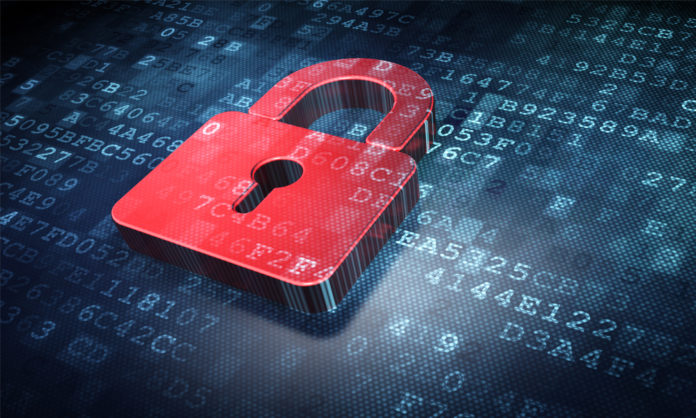

Virtual Private Networks are a pretty important point of contention nowadays. Namely, Internet privacy is being constantly attacked from many directions, leaks are common, and both governments and companies are trying to get their own piece of the pie.
Facebook, Google, Microsoft, all of these companies are very useful, they practically changed how we lead our lives. They have also with or without subtlety squeezed out information and data from all of us and are continually selling this info to others. And since we can’t really rely on the government to take care of this issue, we need to take things into our own hands – and a good VPN is a great starting point.
What is a VPN, exactly?
So, first things first – what is a VPN exactly? Simply put, a VPN is a service that creates an encrypted connection between a VPN server and your device. It is, essentially, a tunnel going through a mountain, with the VPN being the tunnel, your internet provider is the mountain, and the actual exit is the internet.
You gain full access to the Internet, all the while being protected and kept safe.
What is its purpose?
Its core purpose is to create a secret tunnel that allows you to get your data passing through its own servers. These servers keep your data safe and protected, they mask your presence.
They give you anonymity, location spoofing, security, and security for your data. Anyone who is trying to figure out what you are doing online will hit a wall since they won’t be able to figure out what sites you are visiting. Your payments and gifts won’t be traceable either if you use a good VPN. A VPN also allows you to watch geo-blocked content easily. This happens thanks to the servers it has all around the world.
How does it keep you safe?
You might be now wondering – what does the VPN actually do? Well, we will try to explain it in as little technical detail as possible. Just keep our tunnel metaphor in mind.
Namely, a VPN first establishes a communication protocol that comes from your device. It sets boundaries and directs the manner in which data travels from your device to the relevant server your VPN is using. Furthermore, you get extra security through the encryption of your data, which we will also touch upon below.
However, all of these safety features and systems won’t matter much if you get the wrong VPN, and if you don’t practice common sense. We also need to emphasize that all of this is what a good VPN does, a good free VPN that you may find via this link. Namely, an improperly set up, poorly created VPN will only cause you trouble, and might even steal your data. Furthermore, practising common sense when it comes to setting up passwords and keeping your device safe is also just as important as getting good software on.
Communication protocols
First things first – let’s talk about communication protocols. There are several types, some are faster, others are slower, some are more secure, others less so. There are essentially five types – open VPN, L2TP/IPSec, SSTP, IKEv2, and PPTP protocols.
OpenVPN is an open-source protocol that has its material accessible to everyone. While this means that it can be continually and continuously improved and strengthened, it also means that people get the chance to inspect it for weaknesses and issues.
However, it is still one of the most secure protocols, with 256-bit key encryption that is pretty much unbreakable. And since its open-source, it can be used on pretty much any device. The only possible downside is that it tends to be a bit slow.
Secure Socket Tunnelling Protocol (SSTP) is not that well known, but it’s pretty strong for Windows users. Namely, it has been tested with every incarnation of Windows for years, since Windows Vista. Furthermore, it has a 256-bit SL key encryption system, which makes it pretty impenetrable. The only issue is that, since it was originally proprietary to Microsoft, its software and under the hood parts are not really open to everybody.
Next, Internet Key Exchange version 2 (IKEv2). This one is popular for mobile phones since it’s pretty good at reconnecting to lost connections. Essentially, when you’re on the move, it easily finds a new connection and gets itself going.
Point to point tunnels, or PPTP, is the oldest VPN protocol and is pretty much out of use. It has too large gaps in security, it has many vulnerabilities, and it’s only saving grace is speed. However, if you are just interested in getting rid of geo-blocking, it might be all you need.
Encryption
Encryption is, essentially, messing up the info you let out, it gets scrambled and over-complicated so that only a person (or software) that knows the exact manner it was scrambled can get it back to normal.
Without going into too much detail, understand that 256-bit encryption is incredibly powerful. Even the simplest possible word won’t be decrypted if you get it controlled with this type of software. Note that 128-bit encryption is also fantastic, but that it’s not half the strength of 256, but exponentially much less.
Most of the time these encryption methods are just applied automatically. However, their level can vary, depending on the software and app. With a VPN you get to choose the exact level of encryption you want (or choose the VPN with a certain level of encryption). Note that higher encryption set-ups and levels mean a slower VPN service. It’s a matter of choosing speed over safety.
Conclusion
And there you have its folks, a quick guide on just how VPNs keep you safe and secure. You need to understand what they do, what types of protocols are out there, and how they encrypt things. With everything in place, you will be able to browse the web, enjoy the content you weren’t able to before because of your geolocation, and just be at peace knowing your info is safe and secure.
We would recommend you to check the NordVPN review, and you will be on the road to safe internet.




















